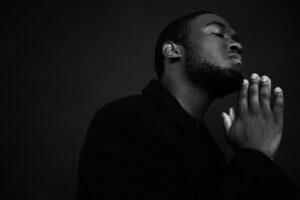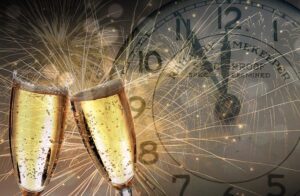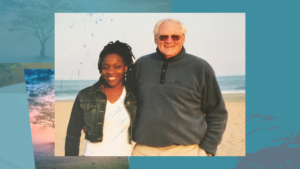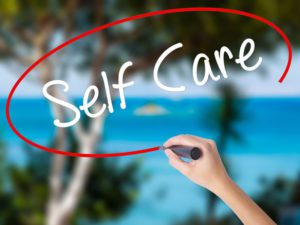I volunteered for one year at a juvenile detention center. I taught a program called “The Family” through drama. At the end of one of the sessions, as we were debriefing, I asked my participants what the one thing was they felt got them into trouble. One participant said the inability to delay pleasure. All the other participants agreed. If they only did not want that “thing” right then—right now, they would not be where they were today.
Last year, I did two retreats at a drug treatment facility for single women and/or mothers on drugs. Here I was facing a different audience, but, like my young inmates, they too had become disillusioned by the dark side of pleasure.
What is Pleasure?
Pleasure is good. In fact, God made us to be relational creatures with the ability to enjoy it. Merriam-Webster Dictionary defines pleasure as a feeling of happiness, enjoyment, or satisfaction; a pleasant or pleasing feeling; activity that is done for enjoyment; something or someone that causes a feeling of happiness, enjoyment, or satisfaction. But if we are paying attention to life, we would learn, hopefully not taking the path of my young participants and retreatants, that pleasure without restraint can be dangerous. For as human beings, we all have the biological capacity for addiction—the dark side of pleasure. We have neurons deep in our brains that play a critical role in the pleasure we experience. These neurons can be hijacked by artificial activators such as cocaine, heroin, alcohol, opiates, gambling, sex, or food. Understanding how we are created neurologically could provide a window for us into God’s original intent for pleasure.
God’s Purpose for Pleasure
I believe our original purpose is for God. We are created by God and for His pleasure, according to Revelation 4:11. I believe God intended for us to experience joy and pleasure by being in his presence, according to Psalm 16:11. I believe this has always been God’s plan before The Fall. Every neuron in our brains and every cell in our bodies were intentionally designed to engage with God and to experience God. It took me years before I understood these words of my host father: I was eighteen and a student in Canada where I met two of the most wonderful people who changed my life forever, my host father and mother, Rob and Kathy. Rob used to share with me tales about his hippy days and would often conclude each story with the saying “There’s nothing like a high from The Most High.” After Rob had become a Christian, the pleasure he once received from drugs could not compare to the pleasure he experienced in having a relationship with Jesus Christ. I do believe our deepest pleasure comes from God and in being in an intimate relationship with Him, out of which we live out of all other relationships. I also believe that our real hunger and cravings are really our souls’ desire for God.
Being Aware
What do you turn to when you are stressed? In teaching The Ten Guiding Lights to Health and Wholeness, I had noticed one of my participants named Eric had missed two classes, so I telephoned him. He had just started a new job and was very stressed trying to learn his new responsibilities. When I inquired how he was doing, he reassured me that he was all right. Though he was not doing great, he said he was thankful to God that he was not struggling with any addiction, but he’s been having several beers with pizza with his buddies after work. I appreciated his honesty. It was not the food, per se, that concerned me, but Eric’s intention. Whether Eric realized it or not, he wanted to relieve his stress or pain through food and alcohol. In his mind, this was not the same as someone who was suffering from an addiction. Ironically, the intention of the addict and Eric’s were the same, that is, to derive comfort outside of God.
The seventh commandment, “You must not commit adultery,” is recognized as one of the guiding lights to health and wholeness. It is in that chapter where participants are taught to be aware of their intimate relationship with Christ that is likened to a marriage. When comfort or pleasure is sought outside this relationship with the purpose of avoiding pain, as in stressful situations, such action becomes a form of adultery. Christ wants all of us who are “weary and burdened” to come to Him (Matthew 11:28). Though we can receive comfort from others, it is Christ who is our ultimate source of comfort.
Pain and pleasure are an integral part of life. We cannot have one without the other. Being aware of how we respond to pain or pleasure is significant to our health and growth. We have to learn how to live fully as Jesus did. He embraced His suffering as well as celebrated life. Being healthy is more than just eating the right foods and exercising regularly; it also involves learning how to embrace all of life without being overwhelmed by the stressors of life or falling prey to the illusion of pleasure.
Join us on this journey of health and wholeness as we follow the ten guiding lights.
In Summary:
- It is important to remember that our original purpose is for God.
- We were created to bring God pleasure.
- God created us to be relational creatures with the ability to experience pleasure with Him and with one another.
- Pleasure has a dark side.
- Love of pleasure bankrupts the soul.
- Pain and pleasure are a part of life.
- It is in our pain where we must learn to grow healthily.
- Jesus Christ is our Ultimate Source of comfort.
- We must live fully!
- We must celebrate life!
Through The Ten Guiding Lights to Health and Wholeness, learn how pain and pleasure affect our health and well-being, and learn how to live healthily and grow in every season of life.









